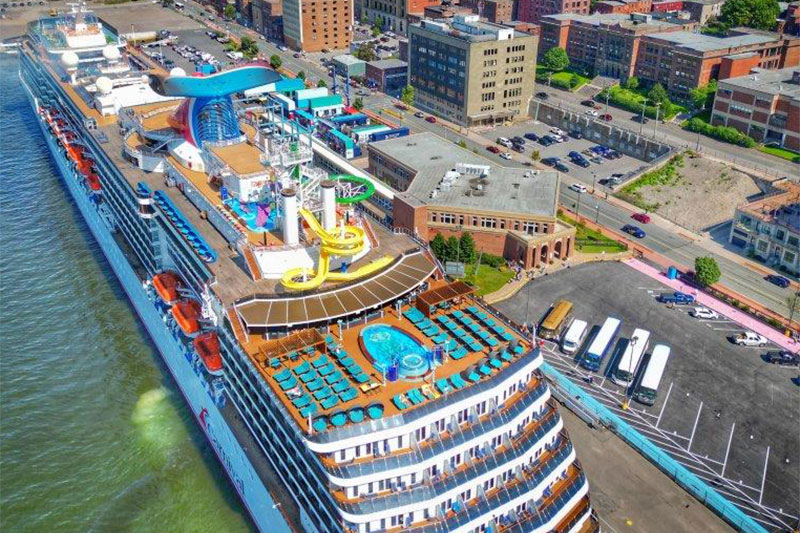SEA Change, a plan setting three-year financial and sustainability targets for Carnival Corporation, was revealed by Josh Weinstein, CEO, on the company’s second quarter earnings call this week.
In SEA, the S stands for sustainability through carbon intensity reduction, the E refers to EBITDA (earnings before interest, taxes, depreciation and amortization) per ALBD (available lower berth day), and the A is for adjusted ROIC (return on invested capital), for which Weinstein said in a prepared statement that he expects to see significant improvements from current levels and well above 2019.
“In fact, the two financial measures will be the best we have seen in almost two decades, and the carbon intensity rate will be unprecedented,” he said.
“For the S, or sustainability, we plan to reduce our carbon intensity by more than 20 percent compared to 2019. Essentially, we plan to deliver on our 2030 decarbonization goal four years early.”
Weinstein claimed that Carnival already has the most fuel-efficient fleet in the industry.
“For the E,” he said, “we are targeting a 50 percent increase in adjusted EBITDA per ALBD compared to our 2023 guidance. This would represent a 25 percent increase over 2019 levels, holding fuel price and currency constant.”
Weinstein also expects adjusted ROIC to reach 12 percent and more than doubling from 2023 levels.
This will be achieved, he said, by having the lowest investment base in the industry and by delivering outsized returns through revenue growth and a managed cost structure.
“These targets are grounded in low-capacity growth of under 2.5 percent compounded annually, which will allow us to use our cash flow generation to pay down debt and rebuild the balance sheet as we work toward investment-grade leverage metrics.
“And most importantly, these targets are not our end goals. They are measurable markers of continuous improvement.”




